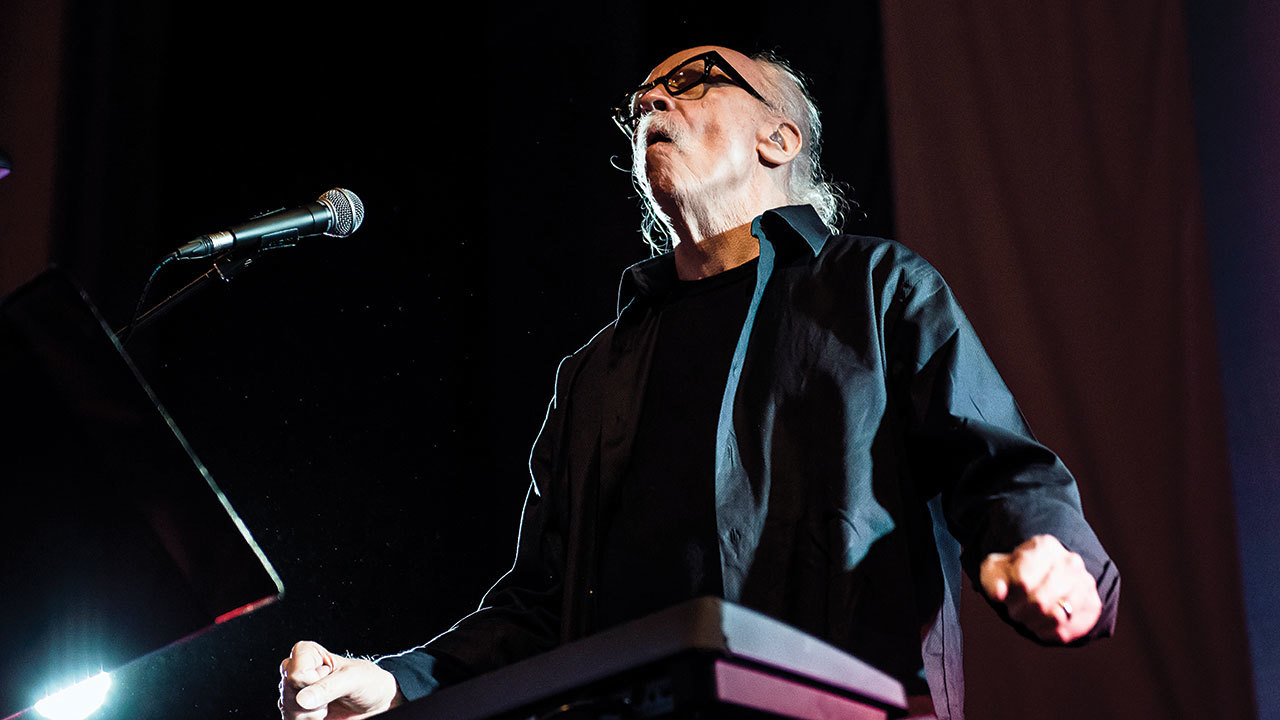In some ways, John Carpenter’s entry into this newfound sphere of entertainment that sees the likes of Danny Elfman’s Tim Burton scores and even Alien performed at the Royal Albert Hall, has been a long time coming. The director has long penned the scores for his films, and indeed in 2015 went a step further with Lost Themes, a collection of his own music, released, as he says, “for fun”.
Given its cinematic scope, there’s always been a link between progressive music and soundtrack work, in the same manner as there has with classical music. Repetitive motifs, an expansive sound, a refusal to confirm to orthodox times – all similar tropes. In the horror genre, too, the link between soundtracks and prog is further emboldened by the likes of Goblin, Lucio Fulci collaborator Fabio Frizzi and even Anekdoten’s Nicklas Barker creating gripping horror scores.
Tonight is angled far more as a rock show. On the back of a second volume of Lost Themes, Carpenter has been on the road for a while now, backed by his son Cody, who features in his own prog rock Ludrium project, and godson Daniel Davies, son of Kink Dave and onetime member of Year Long Disaster, and additional tight-knit three-piece band. Although Prog is seated upstairs, downstairs the packed throng mill in excitement akin to any metal gig.
When the band appear and strike into the main titles from Escape From New York and Assault Precinct 13, it’s very much a rock show with crashing powerchords from Davies and lush swathes of electronica from the Carpenters, John assuming central position behind his own keyboard, bobbing, swaying and even dad-dancing when the mood takes him. Above them a giant screen plays scenes from his films and each moment, aural and visual is greeted with boisterous cheers.
Davies’ razor sharp guitar riffs propel a lot of the Lost Themes material (five from I, a mere two from 2) against a bed of synths from Carpenter Jr, and although devoid of visual accompaniment, form a no less thrilling part of the show. But when faced with sights and sounds from the likes of The Fog, The Thing and even Big Trouble In Little China, the audience inevitably seem sucked in even more.
“Horror films will never die!” hollers John as he launches into the Tubular Bells-like synth run of Halloween, amazingly not the encore, but greeted as if it was. That honour actually goes to Christine, images of the bright red automobile chomping down on human flesh lingering long in the cold, dark nigh

